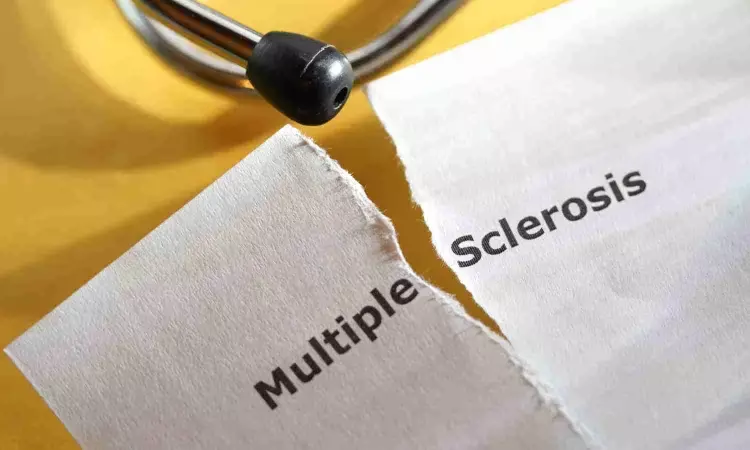- Home
- Medical news & Guidelines
- Anesthesiology
- Cardiology and CTVS
- Critical Care
- Dentistry
- Dermatology
- Diabetes and Endocrinology
- ENT
- Gastroenterology
- Medicine
- Nephrology
- Neurology
- Obstretics-Gynaecology
- Oncology
- Ophthalmology
- Orthopaedics
- Pediatrics-Neonatology
- Psychiatry
- Pulmonology
- Radiology
- Surgery
- Urology
- Laboratory Medicine
- Diet
- Nursing
- Paramedical
- Physiotherapy
- Health news
- Fact Check
- Bone Health Fact Check
- Brain Health Fact Check
- Cancer Related Fact Check
- Child Care Fact Check
- Dental and oral health fact check
- Diabetes and metabolic health fact check
- Diet and Nutrition Fact Check
- Eye and ENT Care Fact Check
- Fitness fact check
- Gut health fact check
- Heart health fact check
- Kidney health fact check
- Medical education fact check
- Men's health fact check
- Respiratory fact check
- Skin and hair care fact check
- Vaccine and Immunization fact check
- Women's health fact check
- AYUSH
- State News
- Andaman and Nicobar Islands
- Andhra Pradesh
- Arunachal Pradesh
- Assam
- Bihar
- Chandigarh
- Chattisgarh
- Dadra and Nagar Haveli
- Daman and Diu
- Delhi
- Goa
- Gujarat
- Haryana
- Himachal Pradesh
- Jammu & Kashmir
- Jharkhand
- Karnataka
- Kerala
- Ladakh
- Lakshadweep
- Madhya Pradesh
- Maharashtra
- Manipur
- Meghalaya
- Mizoram
- Nagaland
- Odisha
- Puducherry
- Punjab
- Rajasthan
- Sikkim
- Tamil Nadu
- Telangana
- Tripura
- Uttar Pradesh
- Uttrakhand
- West Bengal
- Medical Education
- Industry
Elevated CSF glial fibrillary acid protein linked to nonrelapsing progressive multiple sclerosis: JAMA

USA: A recent cohort study published in JAMA Neurology has shed light on the emerging cerebrospinal fluid (CSF) biomarkers of disease activity and progression in multiple sclerosis.
In the study, activated glial markers (glial fibrillary acid protein [GFAP] in particular) and neurofilament heavy chains were associated specifically with nonrelapsing progressive disease outcomes. Elevated CSF GFAP was associated with long-term multiple sclerosis disease progression.
"We found that elevated GFAP and neurofilament heavy chain were associated with nonrelapsing progression and lymphocyte measures were associated with relapsing biology in patients with both relapsing and primary progressive clinical phenotypes," the researchers wrote. "Elevated neurofilament light chain reflected both processes."
There is a lack of biomarkers distinguishing nonrelapsing progressive disease biology from relapsing biology in multiple sclerosis. Cerebrospinal fluid is an accessible fluid that most closely reflects central nervous system biology. Considering this, Anne H. Cross, Washington University School of Medicine, St Louis, Missouri, and colleagues aimed to identify CSF biological measures associated with progressive MS pathobiology.
For this purpose, the researchers assessed data from two prospective MS cohorts: a test cohort provided serial CSF, clinical, and imaging assessments in a multicenter study of patients with relapsing MS (RMS) or primary progressive MS (PPMS) who were initiating anti-CD20 treatment. A single-site confirmation cohort assessed CSF at baseline and long-term (>10 years) clinical follow-up (analysis: 2022-2023).
Test-cohort participants were initiated standard-of-care ocrelizumab treatment. Confirmation-cohort participants received standard-of-care disease-modifying MS therapies or were untreated.
The study's outcomes were twenty-five CSF markers, including neurofilament heavy chain, neurofilament light chain, and GFAP; 24-week confirmed disability progression (CDP24); and brain magnetic resonance imaging measures reflecting tissue loss, focal injury, and progressive biology (slowly expanding lesions [SELs]).
The following were the key findings of the study:
- The test cohort (n = 131) included 100 patients with RMS (mean age, 36.6 years; Expanded Disability Status Scale [EDSS] score, 0-5.5), and 31 patients with PPMS (mean age, 44.9 years; EDSS score, 3.0-6.5).
- The confirmation cohort (n = 68) included 41 patients with RMS and 27 with PPMS enrolled at diagnosis (age 40 years).
- In the test cohort, GFAP was correlated with SEL count (r = 0.33), a greater proportion of T2 lesion volume from SELs (r = 0.24), and lower T1-weighted intensity within SELs (r = –0.33) but not with acute inflammatory measures.
- Neurofilament heavy chain was correlated with SEL count (r = 0.25) and lower T1-weighted intensity within SELs (r = –0.28).
- Immune markers correlated with measures of acute inflammation and, unlike GFAP, were impacted by anti-CD20.
- In the confirmation cohort, higher baseline CSF GFAP levels were associated with long-term CDP24 (hazard ratio, 2.1).
"The findings underscore a role for chronic inflammation and glial activity in nonrelapsing progressive pathobiology and identify GFAP and NfH as more specific candidate biomarkers for progressive biology, potentially improving on NfL, which indicates both injury from acute disease activity and insidious injury," the research team wrote.
"Future clinical trials should incorporate combined measurement of these markers, which could be useful for assessing the effect of emerging therapies on subclinical relapsing and progressive disease mechanisms," they concluded.
Reference:
Cross AH, Gelfand JM, Thebault S, et al. Emerging Cerebrospinal Fluid Biomarkers of Disease Activity and Progression in Multiple Sclerosis. JAMA Neurol. Published online March 11, 2024. doi:10.1001/jamaneurol.2024.0017
Dr Kamal Kant Kohli-MBBS, DTCD- a chest specialist with more than 30 years of practice and a flair for writing clinical articles, Dr Kamal Kant Kohli joined Medical Dialogues as a Chief Editor of Medical News. Besides writing articles, as an editor, he proofreads and verifies all the medical content published on Medical Dialogues including those coming from journals, studies,medical conferences,guidelines etc. Email: drkohli@medicaldialogues.in. Contact no. 011-43720751


